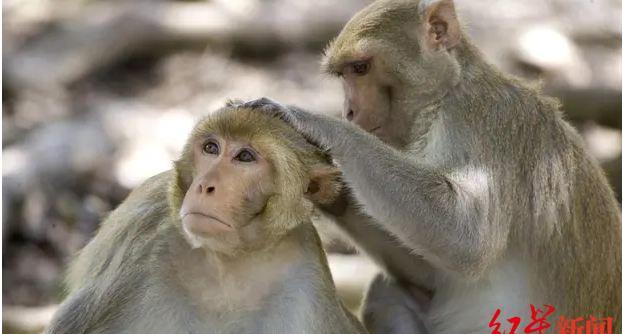According to foreign media reports, a new study published in the National Academy of Sciences Journal (PNAS) shows that puerto Rican macaques that survived the hurricane have prematurely aged more than two years due to catastrophic experiences. The scientists note that the finding suggests that an increase in extreme weather around the world could have negative physiological effects on humans and animals affected by it.

▲ Macaques on puerto Rico's "Monkey Island" image network
It is reported that these monkeys experienced Hurricane Maria in 2017, and later their bodies showed premature aging that exceeded scientists' expectations. More than two years for a monkey is equivalent to seven or eight years of human life. Noah Schneider-McKeller, a professor at arizona State University's Center for Evolution and Medicine and one of the study's authors, has been collecting blood samples from free-roaming macaques on "Monkey Island" near Puerto Rico since 2014. Because of its physiological resemblance to humans, the macaque is the most scientifically studied type of monkey. Scientists have found that a year after Hurricane Maria hit, blood samples from monkeys showed significant changes in their immune systems.
Through gene sequencing techniques, the researchers found that 4% of the monkeys' genes were altered. There are fewer genes associated with protein folding in order to function smoothly about their functions, a natural condition that monkeys and humans see during aging. Genes associated with the inflammatory response have increased, which is also a common phenomenon in some primates during the aging process, and chronic inflammation sometimes leads to cardiovascular disease and some cancers.
Professor Schneider-McKeller also lamented that studying the effects of adversity is frustrating because we see negative effects at different levels, and the effects found in this study are "at the molecular level, long-term effects".
Marina Wortovich, a graduate student at the University of Washington's SMack Lab and lead author of the study, also noted that it's worth noting that the study focused on the average variation of the monkey population, that is, not all monkeys took blood samples each year, and that some monkeys would be in much better physiological condition than others. "It's not that it's either all affected or all unaffected, as if every animal was negatively affected after the hurricane." There are actually a lot of different situations, Vautović points out, and that's exactly what we're going to look at next, who's still in good shape after such catastrophic events and who's not." And how do we keep every animal in good physiological condition like those unaffected animals? ”
Red Star News reporter Lin Rong
Edited by Guo Yu
(Download Red Star News, there are prizes for the newspaper!) )